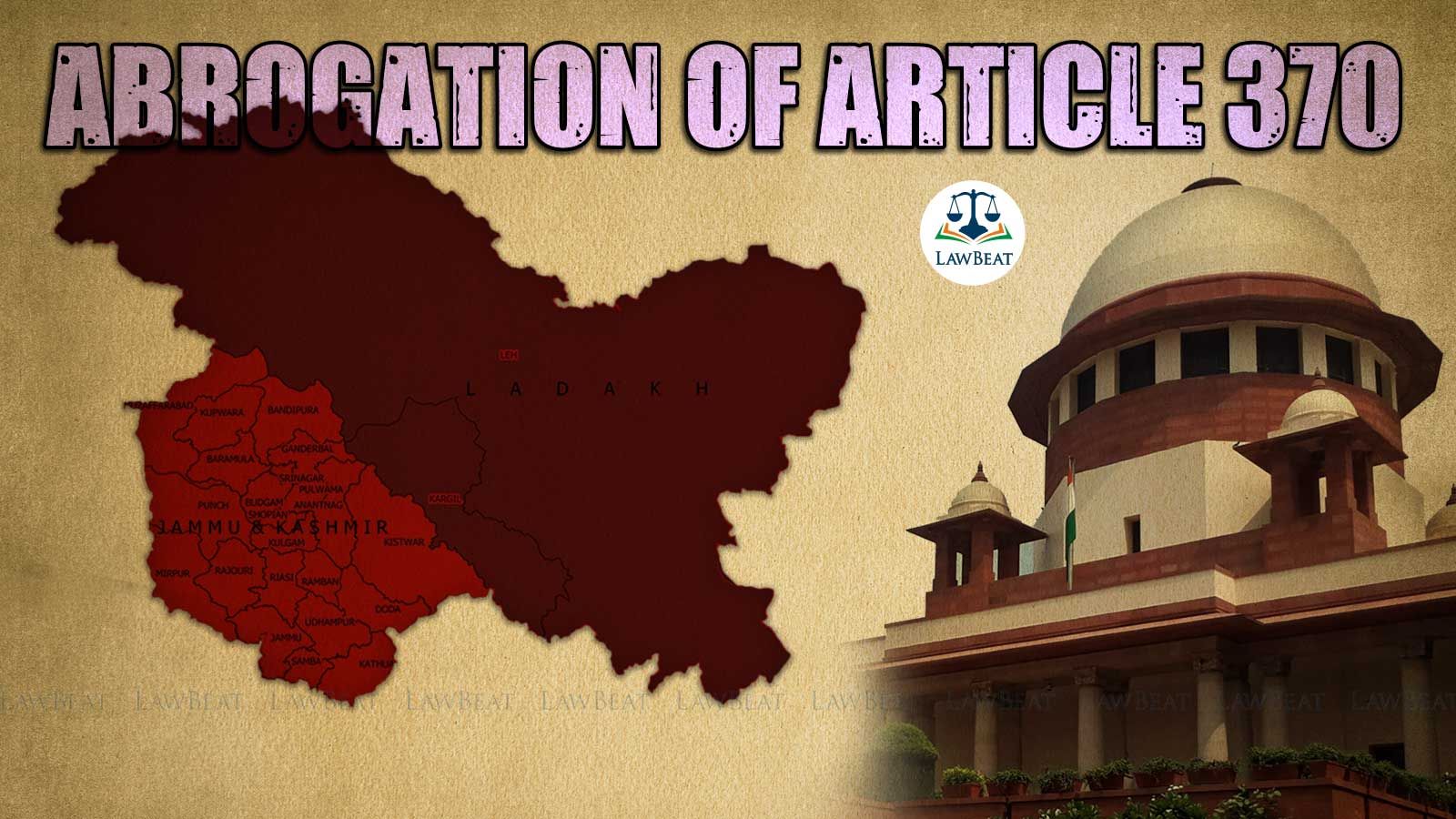J&K and Indian Constitution speak to each other, are complimentary: Senior Advocate Gopal Subramanium tells Supreme Court

Top Court was further told today that the Maharaja of J&K had said before adopting the Constitution, that India is about to frame a new constitution and its provisions shall continue to govern us till the time it is necessary.
The Supreme Court was today told by Senior Advocate Gopal Subramanium that the Jammu & Kashmir Constitution and Indian Constitution speak to each other and they are complimentary to each other.
".the two constitutions speak to each other through Article 370...The Article 370 was not a repository for untrampled power...it was a medium through which the India Constitution could be applied..and here lies the dual obligation, which has to be discovered in the words of S. 147 of J&K Constitution and Article 370 of the Indian Constitution..", the Supreme Court has been told.
Subramanium, who began his submissions today, after Senior Advocate Kapil Sibal, further told a five-judge bench that the basic structure which was to be discerned in the case pertaining to the abrogation of Article 370, will have to be deduced both from the Indian and J&K's Constitution.
A CJI Chandrachud led bench was informed that a Constituent Assembly by its very definition is a primary assembly which is vested with the extraordinary task of framing a constitution, which is why the amending power is always called a derived power, and the present case involved two Constituent Assemblies, one of India and the second of J&K.
"The impugned constitutional orders do away with the J&K Constitution in sum and substance, which is impermissible and unauthorised. Our constitution recognises asymmetric federalism.. and the purpose of this is to take note of special conditions and special needs of people..", a bench of Justices SK Kaul, Sanjiv Khanna, BR Gavai and Surya Kant was further told.
Arguing that J&K was not like any other state at the time of accession, Subramanium added, "This is because of three reasons...J&K had their own contitution before the accession. Two, the accession by the Maharaja was qualified because people were still in the process of making up their minds..What the Indian Constituent Assembly did, was they thought that the will of the people should be ascertained...they maintained the highest sense of democracy and respect..and that is the reason why in draft Article 306A spoke about the constituent assembly of J&K taking a decision..".
Further on his point of difference from the princely states of Junagadh and Hyderabad, the senior lawyer added that, even though the Maharaja was a titular head, the people of J&K were acting as a sovereign to decide what should be there in their Constitution and this was a big difference from the princely states.
The J&K Constituent Assembly omitted a few parts of the Indian Constitution and applied the rest of it verbatim, Subramanium added.
Yesterday, Senior Advocate Sibal concluded his arguments before the Constitution Bench. He argued that the power under Article 3 of the Constitution does not extend to effacing the character of a State into a Union Territory.
Referring to the government's majority in the parliament, through which it passed The Jammu and Kashmir Reorganisation Bill, 2019, Sibal said, "This majoritarian culture cannot destroy the edifice of what our forefathers gave us..they cannot do what they like if they have a majority.."
Sibal had on Day 1 of hearing, told the Supreme Court that the central government abrogated through a political act Article 370 of the Constitution of India, which granted special status to the erstwhile state of Jammu and Kashmir.
"...the govt of the day is staring at this provision and according to me through a political act, not a constitutional procedure declare that it was to be tossed out of the window..such a political act cannot be done by the parliament, it cannot take such a decision..", Sibal had said.
On Day 2 of the hearing, dealing with the petitioners submission that the parliament could not have amended the Constitution to abrogate Article 370, CJI DY Chandrachud had questioned if a new category was being created apart from the basic structure that could not be amended.
Supreme Court was further told by Senior Advocate Sibal that Article 370 could not be abrogated, as the constituent assembly of the state which had the power to do so, was non-existent.
Recently, the central government had filed its affidavit in the matter submitting that the abrogation of Article 370 was a historic constitutional step which has brought unprecedented development, progress, security and stability to the region, which was often missing during the old Article 370 regime.
In its most recent counter affidavit filed in the pleas challenging the abrogation of Article 370, the Union of India had further submitted,
" ...since 2019, the entire region has witnessed an unprecedented era of peace, progress and prosperity. It is submitted that, life has returned to normalcy in the region after over three decades of turmoil. It is submitted that schools, colleges, universities, hospitals and other public institutions are functioning efficiently without any strikes or any kind of disturbances during the last three years. The earlier practice of daily hartals, strikes, stone pelting and bandhs are things of the past now."
Case Title: IN Re: ARTICLE 370 OF THE CONSTITUTION
